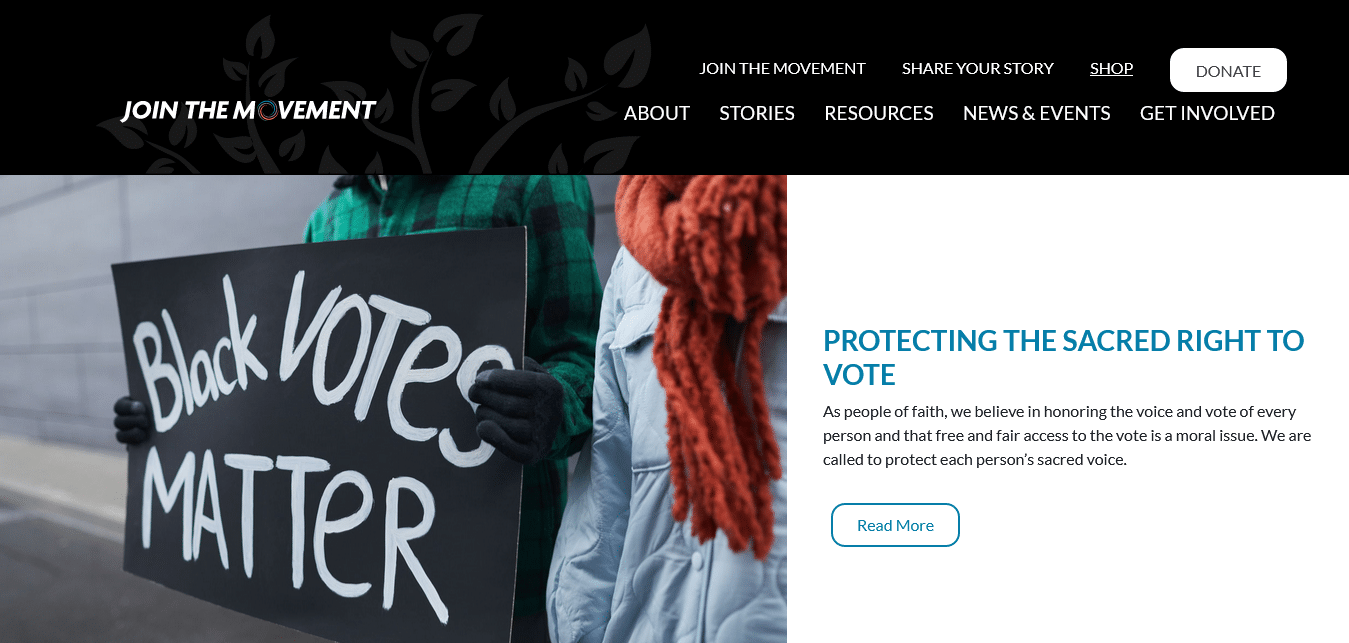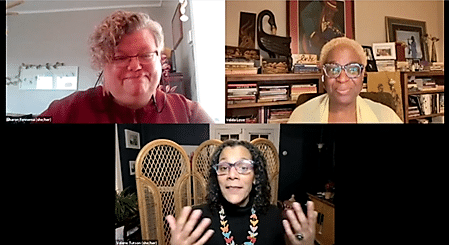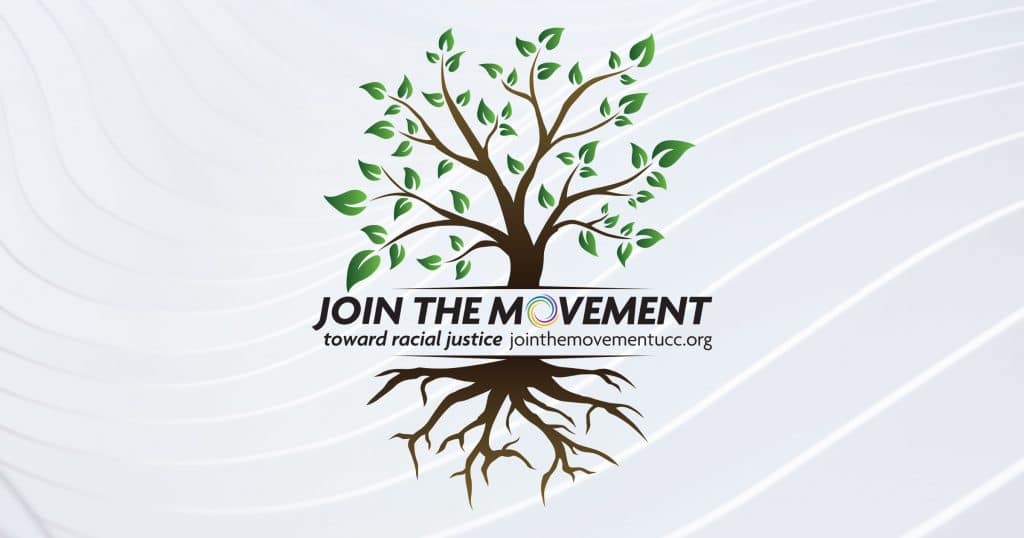‘Together we are better’ – Stories are front and center in Join the Movement
“The Movement” is up and running – and inviting people to tell their stories.
The week of the Rev. Martin Luther King Jr. holiday saw:
- the launch, in earnest, of the United Church of Christ’s Join the Movement Toward Racial Justice website, inviting churches to “practice antiracism,” and
- a webinar on what leaders say is the heart of the movement: storytelling.
The movement was announced at the 2021 General Synod. Its website, with basic information since then, has been expanded. It now offers racial-justice updates and actions churches can take. It has study guides. And it describes work that local churches are already doing.
Good ideas appear in those stories, but they’re there for a deeper reason, said speakers during the Jan. 19 kickoff webinar.
People work best together when they know something about each other, said Sharon Fennema, the movement’s curator. “Until I know your story … I can’t really be in solidarity with you,” she told an online audience of 120. “I can’t really show up to walk alongside you if I’m not willing to learn your story. And I can’t invite you to walk alongside me if I’m not willing to tell my story.”
“Stories are formed by faith,” said the Rev. Velda Love, UCC minister for racial justice, who has lead staff responsibility for the movement. “They’re integral for the continued growth of our communities, our families and especially the Christian church. … Your participation and leadership in Join the Movement will inspire others. Together we are better.”
Study and action
Study and action are both central to the new stories at the website. For instance:
- In Long Beach, Calif., First Congregational UCC got involved in the city budget. “A common and understandable response to police violence and systemic racism among white liberal churchgoers is to read a book, take an implicit bias training, organize a task force to study the problem,” wrote the Rev. Tom Emanuel, the church’s pastor. First Congregational did some of that — but also joined others in bringing a “people’s budget proposal” to the city. Emanuel described it as a “vision of city finances that places the needs of working people of all races and genders at the center,” shifting money away from “militarized policing” and toward “community safety initiatives, affordable housing, education, and programs of social uplift.”
- Admiral Congregational UCC, Seattle, is working to get beyond what the Rev. Andrew Conley-Holcom, its pastor, described as “performative antiracism.” In 2021, the church studied Paul Kivel’s book Uprooting Racism — but not just for “individual edification.” The church also gathered area leaders to apply the book’s insights and map out “effective and honest and repentant antiracism” within local churches and organizations.
- Danville (Calif.) Congregational UCC went from a 2020 Black History Month worship series, to a 2021 Lenten emphasis on white supremacy, to marching on Palm Sunday in support of the family of a homeless Black man killed by a local police officer.
Each entry in the “Stories” section has study questions and a prayer that readers and churches can use.

Storytelling tips
Equally important, though, Fennema said, is the Share Your Story page at the website. It offers “helpful hints” about the kinds of stories Join the Movement is looking for and a simple form for churches to fill out. This, she said, will enable her to follow up and explore how to “share that story in whatever form it calls for” – anything from a podcast to a video to “a piece of art.”
“We know that there are so many more stories that are part of our denomination, part of our partnerships with other denominations, part of our world, that could be shared.”
Webinar speaker Valerie Tutson of Providence, R.I., whom Love introduced as the movement’s “griot” or master storyteller, discussed the importance of stories and led participants in exercises via the online “chat” section. Storytelling is a two-way process, she said.
“Half – at least half – of good storytelling is really good listening,” Tutson said. “We need to find a way that we’re listening, and speaking, and listening, and there’s a dance together.”
The 80-minute webinar – recorded and now available for viewing on Vimeo – addressed topics including:
- Effective ways to get people to tell stories.
- How to get people to move from “book study” mode and into sharing their own stories with each other.
- How storytelling connects people with one another.
- How, as Love put it, storytelling “occurs in every culture and in every age. It is a memory-gatherer.”
- The faith and worship aspects of storytelling for racial justice.
‘No, it’s for everyone”

An online participant asked, via chat, if Join the Movement was only looking for stories of people who would describe themselves as Black, Indigenous or people of color.
“No,” Fennema answered, “it’s for everyone.”
Love agreed. “The invitation is always open for people to understand their own culture, to do their own work, to understand their ancestry and the land they live on,” she said, naming many racial and ethnic descents. “And so we want to honor everyone … across sexual orientation, as well as culture, people groups, continents and lands.”
“Everyone has a story to tell,” she said, “and everyone is welcome to tell those stories as we are part of Join the Movement Toward Racial Justice.”
Related News
A Prophetic Call for Justice and Peace in Palestine
The executive leaders of the United Church of Christ have issued the following statement...
Read More‘Love is Greater Than Fear’: Regional Youth Events get to the heart of gospel message
United Church of Christ teens attending this summer’s Regional Youth Events (RYE) are...
Read MoreUCC desk calendars available to order now
Prepare for your day, month and year with the United Church of Christ desk calendar —...
Read More


